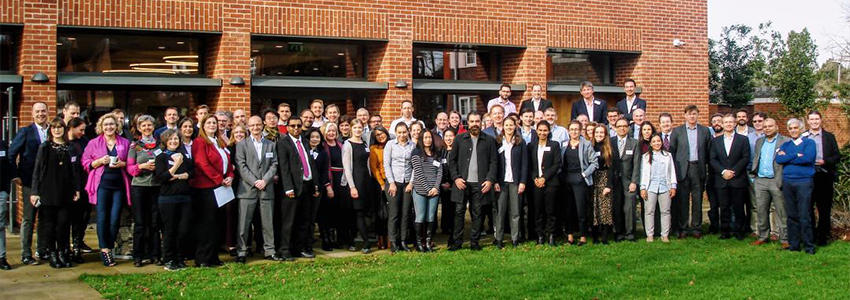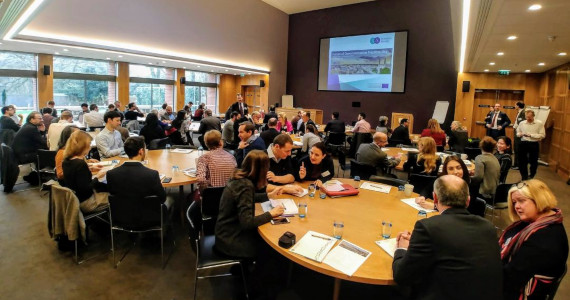Science2Society: university-industry-society collaborations

The IfM has been a key partner in Science2Society, a 3-year pan-European project which has focused on boosting innovation through collaborations between universities and industry. The project, which has recently held its final meeting in Cambridge, has explored how open innovation can be used to increase the social and economic value created from research.
Science2Society has involved a consortium of 18 different partners, from universities and technology transfer organisations to industrial companies. It was funded by the European Union’s Horizon 2020 research and innovation programme.
The primary objective has been to improve the process of knowledge transfer between research and industry, including identifying where bottlenecks and dead ends tend to occur and therefore what could be done to optimise the process.
There have been seven in-depth pilot projects looking at key questions including how an online Open Innovation Marketplace could be developed to facilitate direct connections between university researchers and industry; and how co-location could enable more effective industry-university interactions through common working spaces.
How were the IfM involved?
Dr Nicky Athanassopoulou from IfM ECS led Pilot 6, a project looking at improving management knowledge transfer from universities to small and medium size enterprises (SMEs).
The goal was to understand factors influencing university-SME knowledge transfer, including key enablers and barriers, and identifying ways to refine the process. Typically the challenges for SMEs in trying to engage with universities include limited time to work on how research fits with their organisational strategy or capabilities, and a lack of appropriate tools and processes to facilitate knowledge transfer.
The study involved working with 10 different SMEs to assess different approaches for effectiveness of knowledge transfer. These approaches included:
- One-to-one knowledge transfer: workshops moderated by a facilitator.
- Open courses: workshops with peers of different organisations moderated by a facilitator.
- Co-coaching: workshops moderated by two facilitators: a knowledge specialist and a local coach to cover company-specific knowledge and needs as well as cultural and economic context.
Among the key findings, the pilot showed that while online tools have the benefit of being easily scalable, based on the metrics (measuring learning using the Kirkpatrick Learning Model) they appear to be less effective for knowledge exchange than one-to-one workshops. Open courses also seemed to be effective because they provide peer-to-peer learning between SMEs, and it is also easier to disseminate information to more people faster than with one-to-one workshops. But the long term benefits of open courses are not yet proven.
For any of these methods to be used well, the findings showed that it is vital that universities use facilitators who have industry experience and can relate to real business issues. There is also a need to offer real-world examples to illustrate concepts.
The pilot revealed that knowledge transfer processes need to be designed to allow sufficient reflection time, so insights and potential methods can be thought through in business context. Additionally, there needs to be an emphasis on design and ease of use of any tools or resources used for knowledge transfer.
Final event hosted in Cambridge
Key findings and recommendations from the consortium were presented at a final event in Cambridge, the Future of Open Innovation Practices Day held on February 13th 2019.

The conference, hosted by the IfM and held in the Crausaz Wordsworth Building at Robinson College, was opened with a keynote speech from Tim Minshall, Dr John C. Taylor Professor of Innovation and Head of the IfM, on open innovation research. Other keynotes speakers included Professor Neville Jackson from Ricardo, Dr Marta Piñeiro-Núñez from Lilly Research Laboratories, and Dr Garry Pairaudeau from AstraZeneca. The day included interactive workshops and talks which showcased tangible mechanisms for facilitating stakeholder interaction to ensure science’s impact on society and the markets.
Each of the pilot projects has produced a ‘Blueprint’ document, publicly available, with findings and recommendations. Project members have reported on their own pilots, as well as looking at common elements across all seven, such as trust, communication, and real innovation outputs. There has been an effort to map and model these common themes, to create recommendations for good practice for future cross-European industry and university collaborations.









